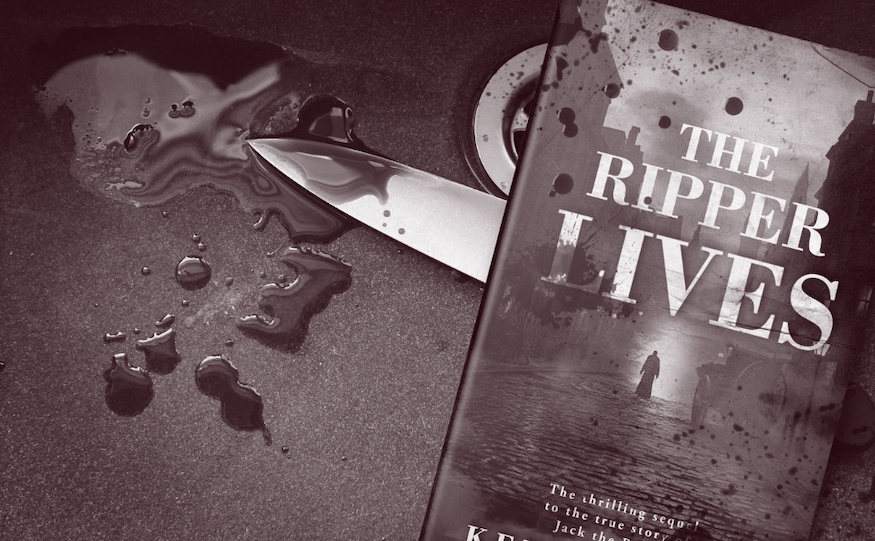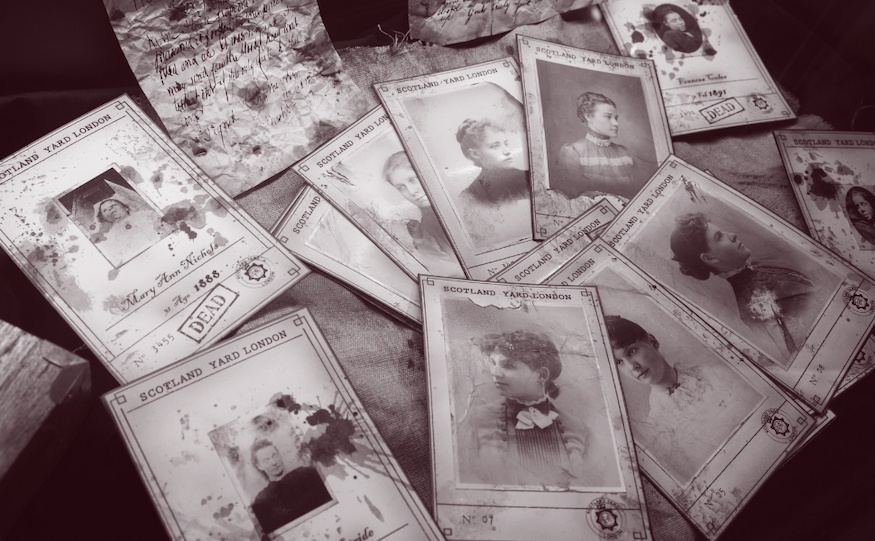The new crime fiction series The Ripper Lives takes readers inside a high-stakes Victorian-era murder investigation, and today we’re joined by a fine gentleman called Gerard Edmund Snook for a look at what’s in store…

The investigators tasked with apprehending Jack the Ripper in author Kevin Morris’ new murder mystery series The Ripper Lives face an uphill battle. Progress is hindered by a perfect storm in the historical fiction whodunit, casting the detectives as underdogs.
The series opens as terrified Whitechapel residents struggle to process newspaper reports of one of the most hellish crime scenes ever encountered. It’s a savage end that triggers a new beginning. As public fear and frustration reach a boiling point, a secret task force is assembled to identify the killer and restore calm and order.
“Everything is working against them,” says Morris. “There are few clues and even fewer witnesses. They have only rudimentary tools, ironically making for a compelling narrative because they must use their intellect.” There are no surveillance cameras, DNA tests, modern profiling methods, or advanced CSI. Even the very idea of a serial killer is in its infancy.
“Complicating matters,” Morris continues, “those at risk are poor and desperate, often playing right into the murderer’s hands. Their livelihood requires meeting strangers in secluded, dimly lit spaces. The East End maze offers multiple escape routes: down alleys, through doors and over fences. Eyewitnesses are sometimes elusive or unreliable, and good Samaritans have been desensitised by rampant crime, rendering many unwilling to put their own lives at risk to save others. Fortune seemingly favours the killer.”
Despite these challenges, the detectives enhance their odds of success by using crime-solving techniques that range from the intellectual to the surprisingly innovative. As the Victorian-era investigation unfolds, ingenuity proves to be their biggest asset.
Chief Inspector Abberline, the lead protagonist and narrator who hails from the East End, knows many residents by face, if not name, and uses his insider status to the team’s advantage. What he doesn’t know, they find out by conducting door-to-door interviews.

“In the enduring search for the perpetrator of the Whitechapel murders, this now notorious Jack the Ripper, it must be said that the resolve of the Metropolitan Police held firm – thousands were interviewed, hundreds investigated, eighty detained.” ~ Inspector Frederick Abberline (pictured above), The Ripper Lives: To Catch a Killer.
Interrogating eyewitnesses, whose potential usefulness reaches new levels during the case, is a critical investigative tactic. This method uncovers pivotal, sometimes shocking, information that moves the narrative forward.
Photographs are taken of crime scenes, blood patterns and victims’ bodies to ensure vital clues are preserved. These photos are used for multiple purposes: identification and, sometimes, as interrogation tools to move witnesses to cooperate. Fortuitously, they serve as records that can be re-examined with fresh eyes as new information comes to light.
Additional evidence, like the cause and time of death, is gathered via autopsies. Performed by police surgeon Thomas Bond, these medical examinations enable police to shortlist the Ripper victims, a critical task since murder is not uncommon in Whitechapel. Results suggest that the Ripper is likely left-handed and has no anatomical knowledge, contributing to the useful leads acquired.

“‘Two lacerations to the throat, each eight inches in length, severing the carotid and jugular,’ Bond continued, ‘Three inches deep, there are signs of damage to the vertebrae.’ Each tilt and stretch bent the gashes in her neck to strange new positions, ‘Angle suggests the killer struck from behind, cutting from left to right. Bruising around the loose tissue confirms a tremendous force applied, leading to exsanguination. By all evidence, this is the likely cause of death.’ Down by the arms and hands, Bond noted something most unexpected…” ~ The Ripper Lives: The Living and the Dead
“Although promising evidence was collected in the case of the Canonical Five,” says Morris, “None of it led to a breakthrough.” Suspect descriptions were too broad to be useful; a blood-stained swatch of fabric and a chaulk-scribbled message hit the wall where they were found, and letters from the Ripper held tight to their secrets. “But they had more than they knew,” the writer reveals, “and as they continue to gather evidence in the new series, it all starts to fit together.”

“Contemplation filled the air as a chill rolled through the room. Silence descended as the four of us turned to study the board as one. Its overlapping pages, threadbare twine, and handwritten scrawl, overloaded with information, inundating with questions, each more pressing than the last. Were we looking for a lone killer? If so, had our eyewitnesses glimpsed him in the night? When and where would he strike next? And why? And, grimmest of all, after Kelly, what would it look like?” ~ The Ripper Lives: To Catch a Killer
After months of investigation and painfully slow progress in the true crime saga that serves as a prequel, The Ripper Lives begins on the knife’s edge. An increasingly fearful and frustrated public is losing patience and turning to others outside the law for protection and solutions. The investigators are in a race to catch the Ripper before another savage murder worse than anything their minds can conjure is discovered, causing the Whitechapel powder keg to explode. “Then, just as it appears hopeless,” promises the author, “their luck starts to turn, bringing them ever closer to the Ripper.”
This article is brought to you as sponsored content. The Ripper Lives is a series of 10 chapters that you can download from Amazon using the buttons below, which takes you to the first instalment, To Catch a Killer.









